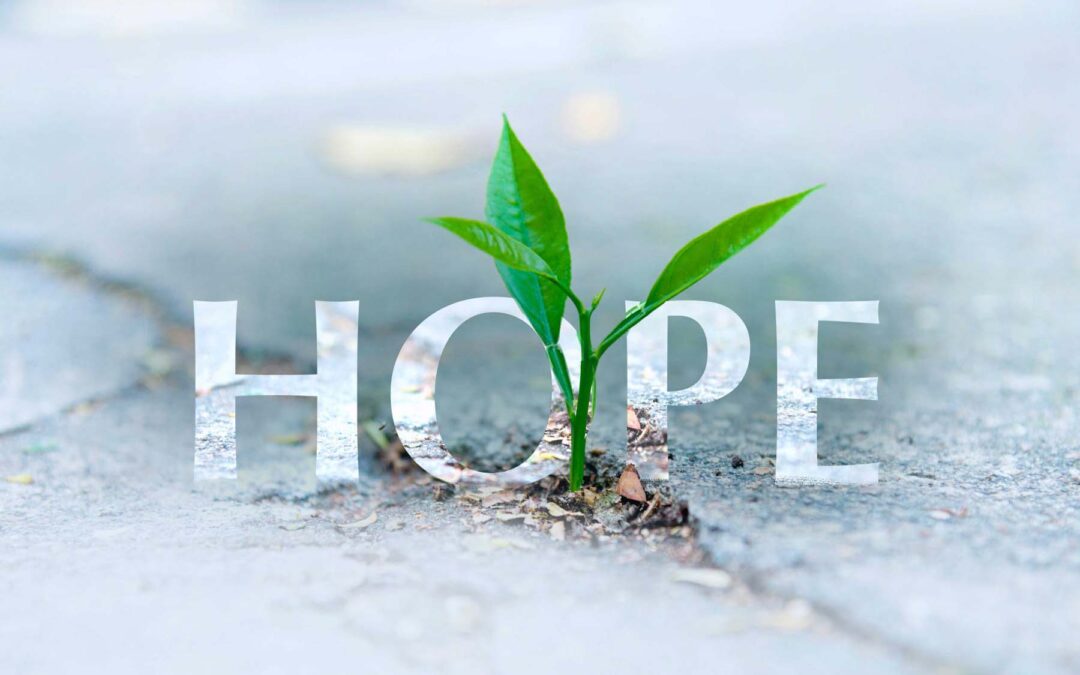Hope: A Vital Component of Coping and Healing
When facing a complex healing challenge that is intense and isolating, it can be easy to feel overwhelmed, lost, and uncertain about the future. The often-long road to healing can seem daunting. Amidst the difficulties, hope emerges as a beacon of light, guiding us through the darkest times. Understanding the importance of hope and nurturing it can significantly impact our ability to cope as we heal.
Why Hope Matters
- Hope Provides Direction: When we are hopeful, we have a sense of direction and purpose. We encourage ourselves to expect a good outcome. Hope gives us something to look forward to, a vision of healing and wellness that motivates us to keep holding on, even during the most difficult, darkest times.
- Hope Enhances Resilience: Resilience is our ability to bounce back from adversity. Hope strengthens our resilience by reminding us that change is possible, and that our current circumstances are not permanent. It empowers us to face challenges head-on and recover from intense phases, flares, and unexpected hurdles.
- Hope Fuels Persistence: Coping with the impact of symptoms and the repercussions often requires sustained effort over time. Hope keeps us persistent, helping us to stay committed to waiting for healing and to doing all we can to care for ourselves and persevere, even when progress seems slow or non-existent.
- Hope Reduces Stress: Hope can have a calming effect on our minds and bodies. When we are hopeful, we experience less stress and anxiety because we believe in the possibility of positive outcomes. This optimism can improve our overall psychological and physical well-being.
- Hope Inspires Positive Action: Hope encourages us to take positive action. It motivates us to ask for help, to try new approaches, and to remain open to possibilities. With hope, we are more likely to engage in activities that support healing.
Holding On to Hope
- Adopt a ‘Healing’ Mindset: Use repetition of thoughts and affirmations as a neuroplasticity tool. Remind yourself of past successes and times when you overcame challenges. Surround yourself with encouraging influences that reinforce your belief in making it to the other side and enjoying a healthier, better future.
- Set Realistic Goals: Approach your healing journey with safe, small, manageable steps, doing more as you heal. Setting and achieving small goals can boost your confidence and reinforce your sense of hope. Celebrate each milestone, no matter how small.
- Seek Support: Connect with others who can relate to or understand your struggles and can offer encouragement. Whether through friends, family or online support groups, having a support system can strengthen your hope and provide reassurance during the toughest times.
- Practice Self-Compassion: Be gentle with and kind to yourself. Understand that healing is not a linear process, and ‘waves’ or ‘flares’ are a natural part of the journey. Treat yourself with the same compassion and understanding you would offer to a loved one.
- Find Meaning: Look for meaning and purpose in your experiences. Sometimes, finding a sense of purpose in your struggles can transform pain into growth and hope. Engage in activities that bring structure to your days and a sense of fulfilment.
Encouragement to Hold Hope Close
As you navigate your healing journey, remember that hope is not just a fleeting emotion but a powerful force that can sustain you through the toughest times. Even when it feels like the odds are against you, holding on to hope can make all the difference. It’s the belief that things can and will get better that will keep you going when everything else seems uncertain.
Healing is the outcome of this recovery process, and your current struggles do not define your future. Embrace hope as your constant companion, and let it light your way towards a brighter, healthier, and more fulfilling life. You have the strength within you to overcome, and with hope, you can have more peaceful times as you receive your healing and make it to the finishing line.
Conclusion
Hope is a crucial part of coping and healing. It provides direction, enhances resilience, fuels persistence, reduces stress, and inspires positive action. By cultivating hope and holding it close, you can navigate challenges with greater strength and determination. Never give up on hope, and never give up on your healing. You are capable of overcoming and thriving, and hope will guide you every step of the way.
With much compassion,


